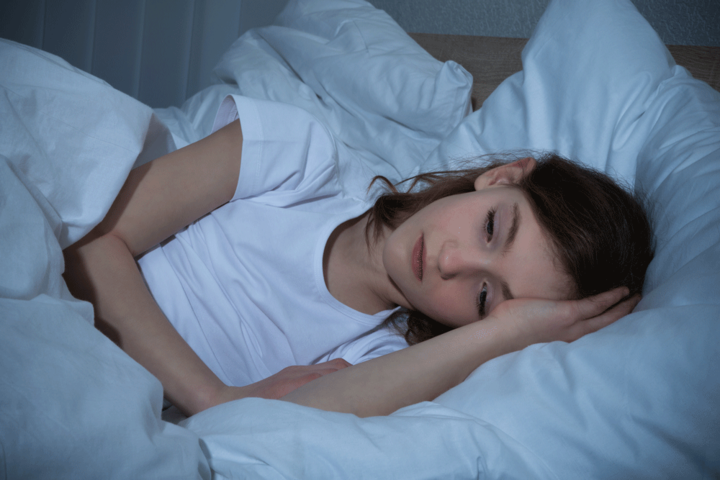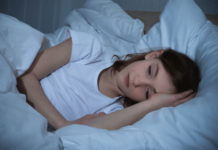determine that sleep problems are preceding the substance use problems,” Dr. Hasler said. “Addressing sleep may now be something we can add to the package of our substance abuse prevention and treatment efforts.”
Food for the brain
A 2006 poll by the National Sleep Foundation (NSF) found that a large percentage of teens were not getting a full night’s rest. On average, adolescents got about 7.6 hours of sleep on school nights.
“However, the amount of sleep varies by grade, with adolescents tending to get less sleep as they get older (from 8.4 hours for sixth-graders to 6.9 hours for 12th-graders),” according to the poll. “Overall, 45 percent of adolescents get an insufficient amount of sleep on school nights (less than eight hours). In addition, about three in 10 (31 percent) get a borderline amount of sleep (eight to less than nine hours).”
The remaining 20 percent of adolescents are getting the maximum amount of sleep, which is nine hours or more, “specifically among 6th- to 8th-grade adolescents, about two in 10 (21 percent) get an insufficient amount of sleep on school nights,” the poll showed.
The amount of sleep Ninth to 12th graders got on school nights is considerably different than their younger counterparts, according to the poll. “Specifically, about six in 10 9th to 12th-grade adolescents (62 percent) get an insufficient amount of sleep on school nights.”
Only 25 percent of those 9th to 12th graders got a borderline amount of sleep, while one in ten (Nine percent) got an optimal amount of sleep.
“Those adolescents who get an insufficient amount of sleep on school nights are much more likely to experience consequences the following day, such as feeling too tired or sleepy, being cranky or irritable, falling asleep in school, having a depressed mood, and drinking caffeinated beverages,” the poll revealed.
The foundation also warns that many teens suffer from treatable sleep disorders, such as narcolepsy, insomnia, restless legs syndrome or sleep apnea. Monitoring these issues can prevent a path toward adolescent alcohol and drug use.
“Sleep is food for the brain” and “skipping sleep can be harmful … ,” NSF said.
How different drugs can impact the quality and quantity of sleep
The onset of addiction to drugs and alcohol can create a vicious cycle in which the quality and quantity of sleep are disrupted.
It has been shown that alcohol disrupts particular neurotransmitters in the brain that control or regulate sleep, according to the New York State Office of Alcoholism and Substance Abuse Services. “Small amounts of alcohol can cause early sedation or sleepiness and is often used as a sedative,” the agency stated.
However, the use of alcohol as a sedative is misleading because of the side effects that could result and disrupt the natural sleep cycle. For example, alcohol can be associated with sleep apnea.
Stimulants like cocaine result in difficulty falling asleep, and the cocaine withdrawal period can be associated with hypersomnia or excessive wakefulness. Heavy MDMA (commonly known as ecstasy) consumption is also associated with persistent sleep disturbances, according to a 2008 study by the Department of Psychiatry and Psychotherapy, Freiburg University Medical Center in Germany.
Marijuana can interfere with normal sleep patterns, as well. The active compound in marijuana, THC, produces changes in brain wave patterns. When taken in large doses or with continued use, marijuana can cause significantly reduced REM sleep.
Prescription drugs such as antidepressants (tricyclics, monoamine oxidase inhibitors, and selective serotonin reuptake inhibitors) are highly potent REM suppressants, typically driving REM sleep to below 10 percent of the night and tolerance does not develop to the REM suppression produced by these antidepressant drugs, even with chronic use, according to a 2015 study published in the Psychiatric Clinics of North America.
“At the very least, the REM effects may reflect the development of physical dependence and an altered central nervous system neurobiology,” researchers stated.
















